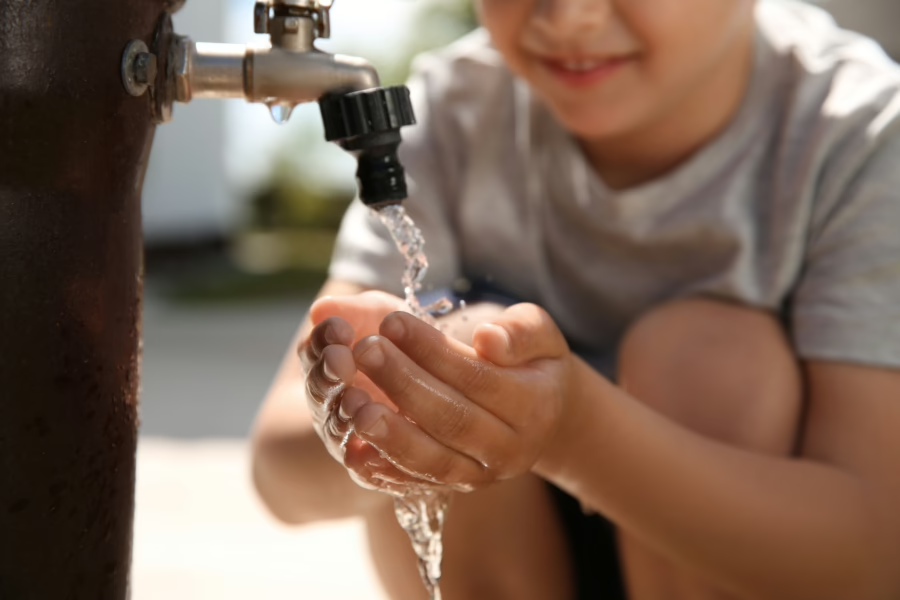November has certainly been a historic month for infrastructure—specifically water infrastructure. After being passed by the Senate back in August, the Infrastructure Investment and Jobs Act (IIJA, known colloquially as the Bipartisan Infrastructure Package) languished in the House. This was largely due to disagreement on a second piece of legislation, the Build Back Better Act (the Democrats-only social spending and climate bill, also referred to as the Reconciliation bill). Progressives in the House had hoped for a bigger infrastructure bill (closer to what the President proposed back in March in his American Jobs Plan) but were okay to stomach a smaller bill in hopes of getting more of their priorities into a larger reconciliation bill that wouldn’t need bipartisan support. But in the Senate, more moderate Democrats were pushing for a narrower reconciliation bill. In a Senate with the narrowest of majorities Democrats could not afford to lose even a single vote, so finding something that satisfies House progressives and Senate moderates has been challenging.
After announcing that an agreement on a framework had been reached, the Biden Administration quickly moved to work with Congress to secure the final passage of the Infrastructure package and proceed with the Build Back Better Act. The House worked and negotiated for weeks, and finally late in the night on Nov. 5th, the House passed the Senate’s infrastructure bill, sending it to the president who signed in the following week. The Alliance has previously done a breakdown of what is in the infrastructure bill, and at $55 billion over five years, it is being hailed as the largest single investment in water infrastructure. The bill includes $23.5 billion for the Clean Water and Drinking Water State Revolving Funds (SRFs), $15 billion for dealing with lead in drinking water, $10 billion for dealing with emerging contaminants like PFAS, and more. The bill is not perfect, but is still a tremendous step towards closing the
widening water infrastructure gap.
The vote in the House saw six Democrat “no” votes, namely progressives that held firm to their threat not to vote for the infrastructure bill without pairing it with a passable Build Back Better Act. Perhaps even more notable were the 13 Republicans that joined the rest of the Democrats in passing the bill. The Speaker promised those that voted for the bill that they would consider the Build Back Better Act when they returned from the Veteran’s Day recess, which they did.
The House-passed version of the Build Back Better Act includes several additional provisions for water, covering some of the gaps in the IIJA. Highlights include:
- $225 million for the creation of a permanent, national low-income water customer assistance program
- $9 billion for lead remediation projects in disadvantaged communities. This is on top of the $15 billion in the infrastructure program, but rather than being delivered through the SRF programs this will instead be delivered through various competitive grant programs
- $975 million for lead remediation projects in rural disadvantaged communities, delivered through USDA programs
- $1.85 billion in CSO and SSO grants
- $150 million for individual household decentralized wastewater treatment grants
- $97 million for the USDA rural water and wastewater grant program
- $125 million for alternative water source projects, including groundwater recharge and potable water reuse
- $100 million for large-scale water reuse projects
- A change to tax policy that makes subsidies received by individuals for things like water conservation or efficiency tax-exempt (as such subsidies for energy conservation and efficiency are currently)
Though these are wins to celebrate for the water sector, the path forward remains unclear. Neither of the moderate Senators (Manchin of West Virginia and Sinema of Arizona) negotiating on the Build Back Better Act in the Senate have endorsed (or even support) the House-passed version. When, or even if, the Senate will consider and pass a compromise bill is unknown at this point. Now that the IIJA and the Build Back Better Act have been de-coupled, the negotiators lack a driving deadline and seem content to focus instead on other issues of more immediate concern (such as funding the government, raising the debt ceiling, and passing a massive annual defense authorization bill). Only time will tell the fate of the Build Back Better Act.


